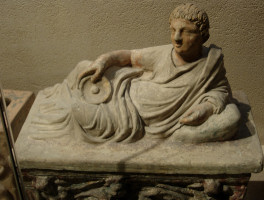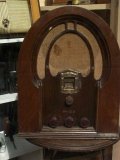Soap Project - five-minute episodes - group project - 'fixed-end' soap
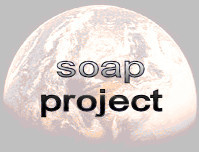
I describe here my system for a RADIO SOAP (radio serial) project (now having completed nine soaps.)
I really recommend this as a project, because it is highly enjoyable, with a product your listeners can enjoy, and because it is team work.
A soap is like a factory.
You have to put in a lot in the PRE-PRODUCTION phase, to get that factory 'built'. But once production starts, you get immediate results.
Soaps are popular. We all have a lot of knowledge about them, and preferences. Now you can discover more.
And you can be original and creative. See 'WRAP PACK' soap (radio serial drama).

Go further - make your soap interactive.
| Use focus group meetings to get feedback on your first completed episodes. And no episode is 'completed' till it goes to broadcast. You will learn from that feedback. |
| Put the interactive into the plot. Get the listeners to vote for a plot situation and for a character. Plan around a MORAL DILEMMA or SAVING A GROUP (in a sci-fi). |
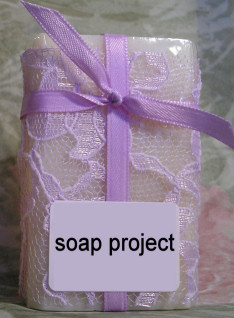
Script from the casting.
| Once you cast the main characters (the 'heroes'), write for their accents and for their strengths. Get the actors involved in these script changes too. They will like it. |
| You can rapidly redraft script for a character. |
Go for some issues - make this an 'issues soap'.
| I don't mean heavy preaching. But it's good to get involved. It's about life. You will have to get the listeners hooked first. Then and only then, introduce an issue. |
| You will have to do some research. There will be legal issues? Medical issues? |
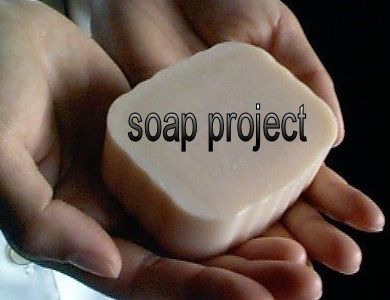
WHERE TO BEGIN?
| Get your team together. Start your script development meetings. |
| Negotiate for broadcast with the radio station. That's why I advise 5-minute episodes - the length of a CD track about, and so this can easily fit in to a music station, a magazine programme, any type of programme. |
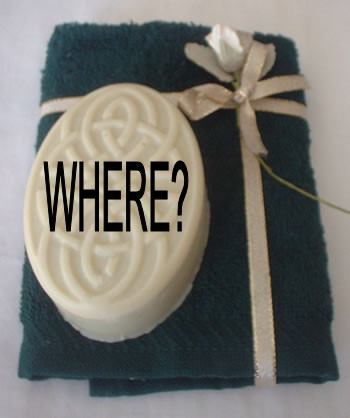
Where? See Locations - moving your characters around and making your plot more exciting
| Two sorts of locations for scenes. Private (homes) and public (inside & outside). |
| PRIVATE - AT HOME: Single and shared bedroom, shared livingroom and shared kitchen, garden etc. |
| PUBLIC - OUTSIDE: Street, outside supermarket, mall, outside church, mountain, seaside, car park, etc. |
| PUBLIC - INSIDE: Shared spaces - bar, restaurant, classroom, factory, mall, etc. |
| Shared inside and outside spaces are great - such as university or school campus. |
| LIST ALL LOCATIONS YOU CAN THINK OF - FOR SCRIPT DEVELOPMENT. It's a good example of pooled knowledge. Often a scene problem can be solved by moving the action elsewhere. And so you stop the 'stand-and-deliver' acting. |

Who? See ALAN BECK'S FORMULA FOR THE MAIN CHARACTERS
Different categories. A character can cross over in the progress of the soap. Many stay in the same category.
Crossing over for one or two or three gives dynamism. And then crossing back again.
Categories: 'good'/'bad', main ('heroes') versus the rest, gossip, boss (teacher?), co-worker (student?), family member, carer, authority (boss, teacher, doctor, dentist)
Depends on casting - what range of ages?
| Heroes - male and female - the main characters. These are 'good' and 'bad'. |
| Main character only for a 'clump' (group of five episodes). |
| Sympathetic characters ('good') - we like them and want them to succeed. |
| Unsympathetic characters ('bad') - we don't like them. We want them to lose. |
| PASSING AROUND INFORMATION: 'gossip character' (we can rely on to pass around information). Is this gossip character 'good' or 'bad'? Possibly 'bad'? |
| BIOGRAPHY OF EACH CHARACTER - work out all the details and especially how this will be translated into the dialogue. |
What?
| I prefer lots of plot events. Plan the STORYBOARD of the entire soap. Do not begin writing until you have plotted EVERY EPISODE and EVERY SCENE. |
| Then the writing will be swifter. |
| RULE: Get into a scene as fast as possible, and get out of it as fast as possible. Nearly always have action. |
When?
GO FOR CONFLICT

ALAN BECK'S 'SOAP FACTORY'
Each student responsible for:
| scripting and directing and post-production of five episodes = 25 minutes broadcast |
| one trail (max. 1 minute) - more trails welcome |
| crewing for other students' production - group responsibilities - auditions - casting |
| material for the soap web site |
| drop-in script - for each episode (goes on web site) = script for programme presenter when the episode goes on air |
| marketing the soap for broadcast |
| logging all copyright material - see Copyright - main guidance |
| script development meetings |
| production meetings |
| focus group meeting to play first scenes to invited listeners for responses |
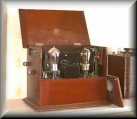
As this is a group project for broadcast:
| Each episode is SIGNED OFF by Teacher - script (to go into production), and post-produced episode (ready for broadcast) |
| Teacher is Editor - with absolute decision-making rights. |
| You may think this is unusual for a student project. But every soap is a 'factory', a working system with a product. Every soap is a pyramid structure, finally under the management of one SOAP EDITOR. Students learn how to put genre scripting and production to work within a managed system. |
| PRE-PRODUCTION - script development meetings & auditions & 'soap bible' with working web site for exchanging information |
| PRODUCTION - directing scenes in the Studio and outside the Studio (OB) & proper numbering of scenes |
| POST-PRODUCTION - getting the scenes and episodes into the final version for broadcast & timing the episodes precisely |
SCRIPTING and CASTING

| Start script development as early as possible - script meetings to develop plot lines, characters (and their back stories), the overall structure and design of the soap. Group agrees on the overall rules and procedures. There have to be some foundational rules - including script that suits your casting pool, and fitting the story into the five-minute episodes. Script development takes more time than you think. |
| There are some characters you probably cannot script - because you have to suit your scripting to your casting resources - see soap - see Short introduction to Auditions AND Think script when recording. |
| Run AUDITIONS as early as possible too. This site gives you a lot of detailed support for auditioning, because it is a skilled process. And because the success of your soap depends on a good and varied team of actors. |
Soap - TECHNICAL TERMS & SOME EXPLANATIONS - reminder




